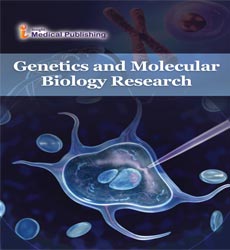Importance of Medical Genetics Research in Medicine
About millions of families are affected by hereditary diseases around the world. Statistics analysis showed that about 5% of all pregnancies give a child having different anomalies including a genetic disorder, congenital malformation, or significant disability. It is estimated that 43% of patients having mental retardation are due to a monogenic disorder or chromosomal anomalies In developed countries, fully or partially inherited diseases account for approximately 45% of admissions pediatrics in hospitals. In developing countries, prenatal and infant mortality accounts for the most important percentage of hereditary diseases reaching 25%. The most non-infectious diseases causing death have probably a genetic component in developed countries. Although many of the affected individuals lead normal lives and do not necessarily have observed pain, many individuals and families are still touched by genetic diseases despite the quality of their life and the medical supervision by which are surrounded. For example, people with mental retardation and congenital disabilities have almost normal lives in their developed countries. It is their families' responsibility to take care of them. Statistics analysis realized in the USA estimated that about 2 million people have mental retardation, of whom only 4% live in institutions. Most others live at home. Many different medical and social services provided to them represent a significant and expensive cost, as well as economic loss due to the care for people with genetic diseases provided particularly by their families and society. In this context, it seems very important to continue efforts to develop medical research with particular attention to medical genetics which is able to provide effective treatments for all health communities. Medical genetics is the specialty most targeted for providing services to people with genetic diseases and their families. These services ameliorate the life of people having genetic disorders and their families and help them to have breasts children using medical services (diagnosis, treatment, rehabilitation, or prevention) and social assistance systems to adapt them to their situation and put them on the page of new developments effective them. The conditions studied by geneticists include monogenic anomalies and diseases affected by one defective gene (e.g. hemophilia and cystic fibrous diseases caused by the interaction of many genes in relation to environmental factors (e.g. diabetes, hypertension, and cardiovascular diseases) and conditions due to aberrations chromosomal (e.g. Down syndrome). In medical genetics, the working diagnosis includes molecular analyzes (DNA, proteins, and chromosomes) and clinical manifestations of conditions, including malformations at birth. If monogenic diseases are rare, those caused by the gene/environment interaction are common and include many diseases. Prevention in medical genetics involves common pathologies and the identifications of subjects with high risk, with the intention of preventing the disease (e.g. heart disease) or being able to diagnose and treat early (multiple cancers).
Open Access Journals
- Aquaculture & Veterinary Science
- Chemistry & Chemical Sciences
- Clinical Sciences
- Engineering
- General Science
- Genetics & Molecular Biology
- Health Care & Nursing
- Immunology & Microbiology
- Materials Science
- Mathematics & Physics
- Medical Sciences
- Neurology & Psychiatry
- Oncology & Cancer Science
- Pharmaceutical Sciences
